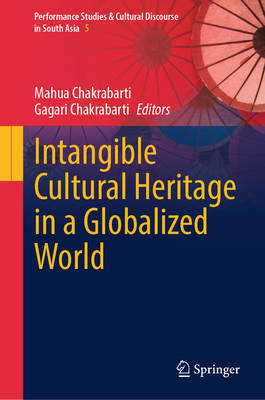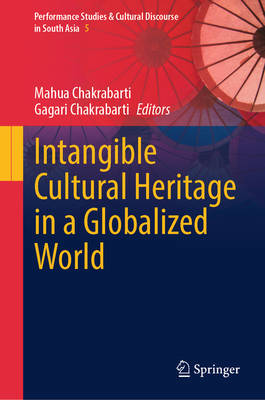
- Afhalen na 1 uur in een winkel met voorraad
- Gratis thuislevering in België vanaf € 30
- Ruim aanbod met 7 miljoen producten
- Afhalen na 1 uur in een winkel met voorraad
- Gratis thuislevering in België vanaf € 30
- Ruim aanbod met 7 miljoen producten
Zoeken
Intangible Cultural Heritage in a Globalized World
€ 244,45
+ 488 punten
Omschrijving
This collection of essays covers a range of issues related to the intangible cultural heritage prevalent in South and Southeast Asia. The book thus furnishes a comprehensive account of the oral traditions, beliefs, cultural practices, language and literature, folklore, songs, foods, healing traditions, holidays, etc., of India, Bangladesh, Pakistan, Cambodia, Myanmar, Thailand, Vietnam, Indonesia, Malaysia, and Sri Lanka, along with their diversity and issues. As there are different types, issues, and challenges regarding the conservation of intangible cultural heritage, this volume is divided into four different sections. They are Oral traditions and expressions; Performing arts, rituals, sports, and festivals; Traditional cuisine; Knowledge and practices concerning life, nature, and the universe. The volume discusses a 360-degree view of issues and challenges to the intangible cultural heritage of South and Southeast Asia. Studies using extensive field studies (in countries of South and Southeast Asia) and covering a breadth of issues showcase a distinctively senior cohort of researchers whose contributions will be influential for tomorrow's research practices. The aspects analyzed are both traditional (e.g., traditional food preservation) and emerging (e.g., changing lifestyles of ethnic groups). This edited volume offers immense potential by bringing together senior and young scholars who revisit a perennial question with a sharper focus to unravel essential insights that will surely inform tomorrow's knowledge and policymaking.
Specificaties
Betrokkenen
- Uitgeverij:
Inhoud
- Aantal bladzijden:
- 355
- Taal:
- Engels
- Reeks:
- Reeksnummer:
- nr. 5
Eigenschappen
- Productcode (EAN):
- 9789819646623
- Verschijningsdatum:
- 26/07/2025
- Uitvoering:
- Hardcover
- Formaat:
- Genaaid
- Afmetingen:
- 156 mm x 234 mm
- Gewicht:
- 698 g

Alleen bij Standaard Boekhandel
+ 488 punten op je klantenkaart van Standaard Boekhandel
Beoordelingen
We publiceren alleen reviews die voldoen aan de voorwaarden voor reviews. Bekijk onze voorwaarden voor reviews.







